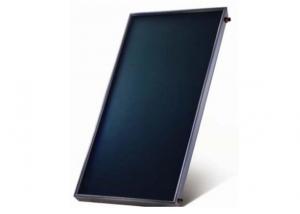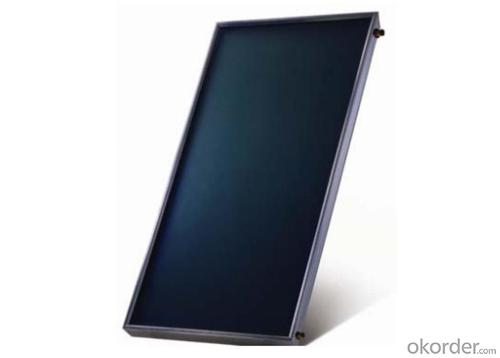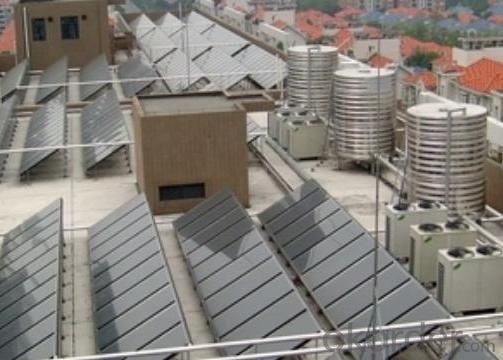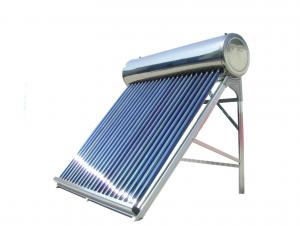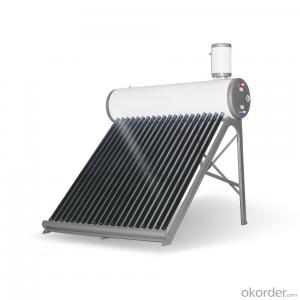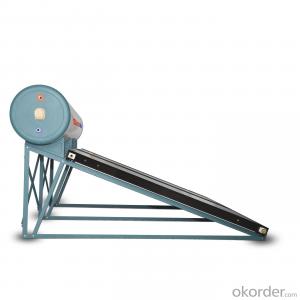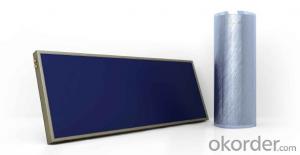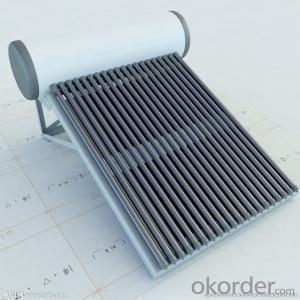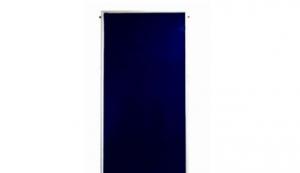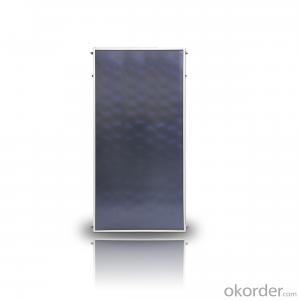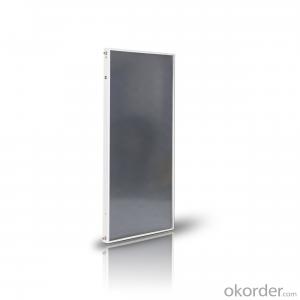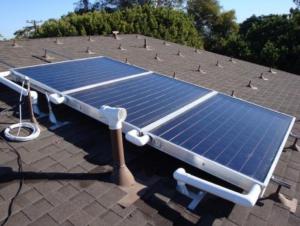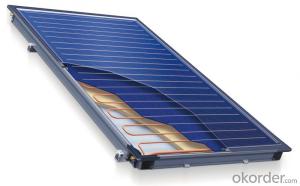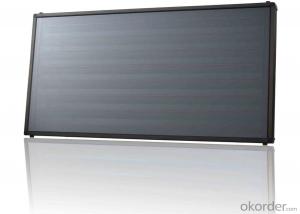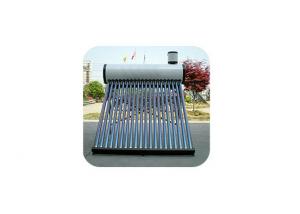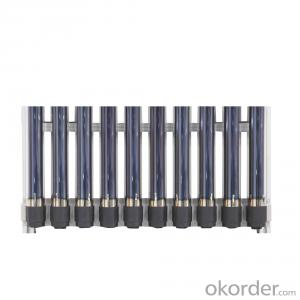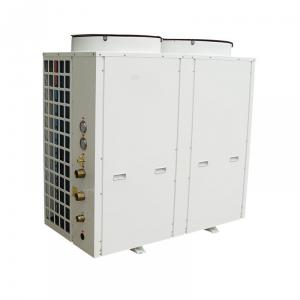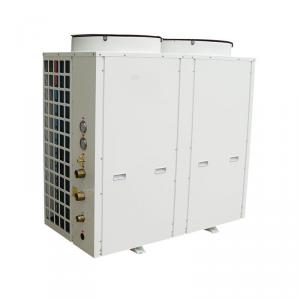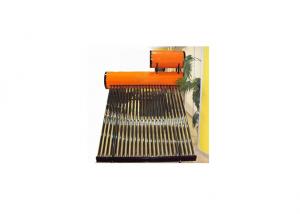Ariston Solar Water Heater Dubai - FS-PTY Series Solar Flat Plate Collector
- Loading Port:
- Shenzhen Port
- Payment Terms:
- TT or LC
- Min Order Qty:
- 1 unit unit
- Supply Capability:
- 1-10000/month unit/month
OKorder Service Pledge
OKorder Financial Service
You Might Also Like
Packaging & Delivery of the Solar Flat Plate Collector FS-PTY Series
Packaging Detail: cartons,wooden package for LCL load.
Delivery Detail: 15 working days
Features of the Solar Flat Plate Collector FS-PTY Series
Copper pipes and fins
Black Chrome plating
American ultrasonic welding
Tempered glass cover
Size: 2000*1000*80mm
Advantages of the Solar Flat Plate Collector FS-PTY Series
Great pressurization property, very safe and clean.
Absorption ≥94%; emission ≤10%.
Strong thermal stability.
Strong welding property and conductivity.
Strong protection to the collector.
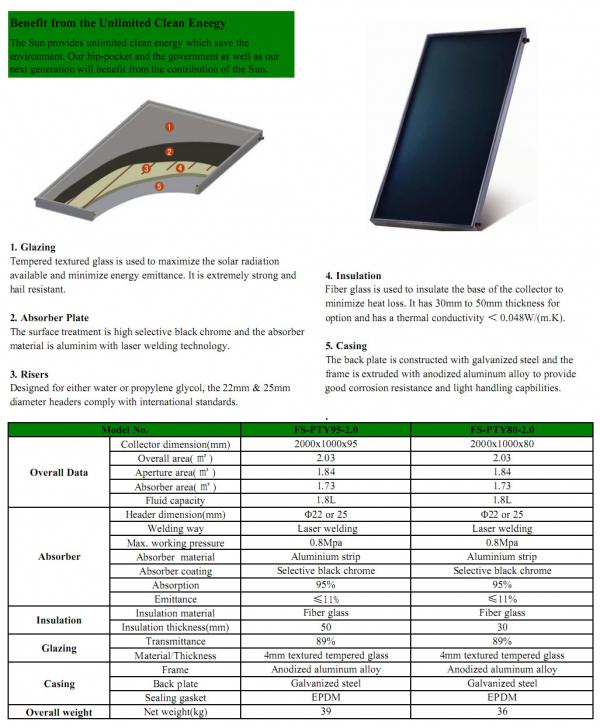
The usage of the Solar Flat Plate Collector FS-PTY Series
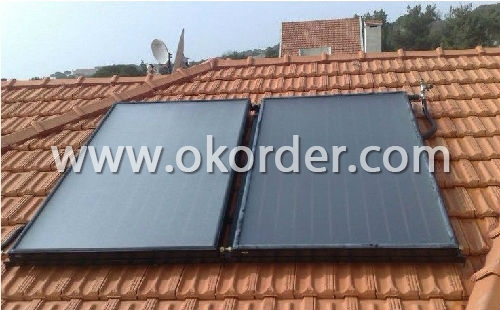
The production line of the Solar Flat Plate Collector FS-PTY Series
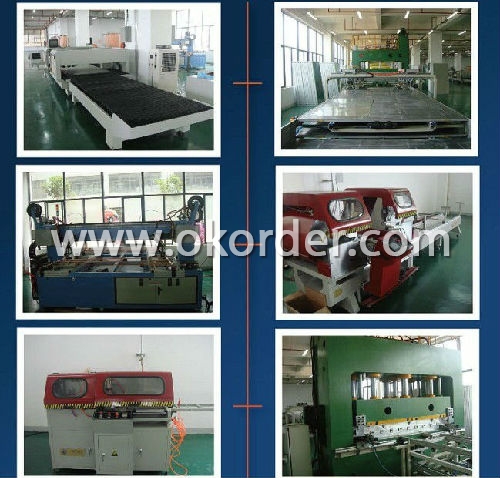
- Q: How long is the solar water heater used?
- The manufacturer said solar water heater service life of 15 years or so, in this regard, consumers should have a clear understanding of the cause of the solar water heater. "Short-lived", a vacuum tube. The vacuum tube is the core component of solar water heater, solar water heater is the "heart". It directly determines the quality of the performance of the whole water heater. Vacuum tubes performance affected by coating technology and cleaning, coating, vacuum, sealing and other processes. However, some ultra low-cost solar water heater using vacuum tube has the following defects: low vacuum, only quality products of 1/100; a large number of impurities and residual water vapor pipe, an encounter high temperature becomes gas, vacuum reduction; low vacuum film stability of two or three years, intimal layer aging, loss, resulting in thermal performance decays rapidly, unable to absorb sufficient heat.
- Q: Can a solar water heater be used in areas with hard water?
- Yes, a solar water heater can be used in areas with hard water. However, it may require additional maintenance and care to prevent mineral deposits from building up on the solar panels or inside the system. Regular cleaning, descaling, and using water softeners or filters can help mitigate the effects of hard water on the solar water heater's performance.
- Q: How does the tilt angle of the solar panels affect the efficiency of a solar water heater?
- The efficiency of a solar water heater is greatly influenced by the tilt angle of the solar panels. The angle at which the panels are inclined determines how much solar radiation they can capture and convert into usable energy. Ideally, the tilt angle should be carefully adjusted to ensure the panels receive maximum sunlight throughout the day. It is important to position the panels perpendicular to the sun's rays, allowing for optimal absorption of solar energy. Failure to tilt the panels at the right angle can significantly reduce their efficiency. If the angle is too low, the panels may not receive enough sunlight, resulting in lower energy generation. Conversely, if the angle is too high, the panels may receive excessive sunlight, leading to overheating and reduced efficiency. Moreover, the tilt angle must be customized based on the geographical location of the solar water heater. The ideal tilt angle varies depending on the latitude of the installation site. For instance, in the Northern Hemisphere, the panels should generally face south, while in the Southern Hemisphere, they should face north. To sum up, the tilt angle of solar panels directly impacts the efficiency of a solar water heater. By optimizing the angle to align with the geographical location and maximize solar radiation absorption, the solar water heater can achieve higher energy generation and overall improved efficiency.
- Q: Can a solar water heater be used in areas with limited access to electricity infrastructure?
- Areas with limited access to electricity infrastructure can effectively use solar water heaters. These heaters operate by harnessing energy from the sun to heat water, eliminating the need for electricity. They consist of a solar collector, which absorbs the sun's rays and transfers the energy to the water, and a storage tank to hold the heated water. In regions with limited electricity infrastructure, solar water heaters offer a dependable and economical solution for obtaining hot water. By solely relying on the sun's energy, they can provide hot water even in remote locations or areas with unreliable electricity supply. Solar water heaters are designed to be efficient and easy to maintain. They can be built using simple and sturdy materials, making them suitable for deployment in resource-constrained regions. Moreover, solar water heaters have a long lifespan, reducing the frequency of replacements or repairs. By utilizing solar energy, these systems also help reduce carbon emissions and decrease reliance on fossil fuels. This makes them environmentally friendly and sustainable alternatives to traditional water heating methods that depend on electricity or non-renewable energy sources. In summary, solar water heaters are a practical and viable choice for areas with limited access to electricity infrastructure. They offer a reliable, cost-effective, and environmentally friendly means of obtaining hot water, making them an excellent option for off-grid or remote locations.
- Q: How does the tilt of the solar panels affect the performance of a solar water heater?
- The tilt of the solar panels plays a crucial role in the performance of a solar water heater. The angle at which the panels are tilted determines the amount of sunlight they can capture throughout the day. By adjusting the tilt to match the latitude of the installation site, the panels can maximize their exposure to the sun, leading to increased solar energy absorption. This, in turn, enhances the efficiency and effectiveness of the solar water heater, resulting in a higher water heating capacity and overall performance.
- Q: Are there any limitations on the placement of a solar water heater on a building?
- Yes, there are several limitations on the placement of a solar water heater on a building. Some of the main limitations include: 1. Structural Considerations: The building should have a strong and sturdy roof or mounting system to support the weight of the solar water heater. The location should be able to withstand the additional load and any potential wind or snow loads. 2. Orientation and Sun Exposure: The ideal placement for a solar water heater is on a south-facing roof, as it ensures maximum exposure to sunlight throughout the day. If the building's roof does not face south or receive adequate sunlight, the efficiency of the solar water heater may be compromised. 3. Shading: The solar water heater should be installed in an area that is not shaded by nearby trees, buildings, or other structures. Shading can significantly reduce the efficiency and effectiveness of the system. 4. Local Regulations and Permits: Before installing a solar water heater, it is important to check with local authorities and obtain any necessary permits. Certain areas may have restrictions on the placement of solar panels or specific guidelines to follow. 5. Space Availability: Sufficient space on the roof or other suitable areas of the building is required to accommodate the solar water heater system. The size and dimensions of the system should be considered to ensure proper installation and functionality. 6. Accessibility for Maintenance: It is important to consider the accessibility of the solar water heater for maintenance and repairs. The location should allow easy access for regular cleaning, inspection, and troubleshooting. Overall, while there are limitations on the placement of a solar water heater on a building, it is crucial to find an optimal location that meets the structural requirements, allows for maximum sun exposure, and complies with local regulations. Consulting with a professional installer or conducting a site assessment can help determine the best placement for a solar water heater.
- Q: Can a solar water heater be used in areas with limited water availability?
- Yes, a solar water heater can be used in areas with limited water availability. Solar water heaters use sunlight to heat water, rather than relying on traditional water sources. Therefore, even in areas with limited water availability, solar water heaters can still be effective in providing hot water for various purposes. Additionally, some solar water heater systems have the option to store heated water for later use, which can be beneficial in areas where water supply is limited or inconsistent. However, it is important to note that the efficiency and effectiveness of a solar water heater may vary depending on the specific conditions and climate of the area.
- Q: Can a solar water heater be used in areas prone to wildfires?
- Yes, a solar water heater can be used in areas prone to wildfires. While the risk of wildfires can be a concern, it is important to note that solar water heaters do not pose any direct fire risk themselves. Unlike traditional water heaters that may use gas or electricity as a heat source, solar water heaters rely on the sun's energy to heat water, making them inherently safer in wildfire-prone areas. However, it is crucial to consider the overall safety measures and precautions in place when installing and operating a solar water heater in such areas. Here are a few important points to consider: 1. Proper installation: Ensure that the solar water heater is installed by a qualified professional who follows all safety guidelines and regulations. The system should be properly anchored and secured to prevent any damage during high winds or wildfires. 2. Regular maintenance: Regularly inspect and maintain the system to ensure it is in optimal working condition. This includes regular cleaning, checking for any leaks, and ensuring all components are functioning properly. 3. Fire-resistant materials: Use fire-resistant materials, such as metal or concrete, for the mounts, plumbing connections, and storage tanks associated with the solar water heater system. This reduces the risk of fire ignition or spreading. 4. Clear vegetation: Maintain a clear space around the solar water heater, removing any dry vegetation or flammable materials that could potentially fuel a fire. 5. Proper insurance coverage: Ensure that your homeowner's insurance policy covers solar water heaters and any associated risks in case of a wildfire or other damage. It is important to stay updated with local regulations and guidelines concerning the use of solar water heaters in wildfire-prone areas. By following these safety measures and taking appropriate precautions, a solar water heater can be safely used in areas prone to wildfires, providing an environmentally friendly and cost-effective way to heat water.
- Q: What are the installation requirements for a solar water heater's circulation system?
- The installation requirements for a solar water heater's circulation system depend on the specific design and technology used. However, there are some general guidelines to consider when setting up the circulation system for a solar water heater. Firstly, it is essential to ensure that the solar water heater is strategically positioned to maximize sunlight exposure. The circulation system should be installed in a location where it can receive direct sunlight for a significant part of the day. Typically, this means placing the solar collector panels on a south-facing roof or mounting them on a rack with the correct angle and orientation. Next, the circulation system requires proper insulation to minimize heat loss. Insulated pipes should be used to connect the solar collector panels to the storage tank or heat exchanger. Insulation can also be applied to the storage tank and any other components of the circulation system to prevent heat losses during transport. In terms of plumbing, the circulation system should include a pump to move the heated water from the solar collector panels to the storage tank or heat exchanger. The pump should be appropriately sized to ensure efficient water circulation without excessive energy consumption. Additionally, check valves or other flow control devices may be necessary to prevent backflow and ensure proper water flow direction. Furthermore, a controller and sensors are often installed to monitor and regulate the system's operation. The controller helps manage the pump's operation based on temperature differentials or other preset parameters. The sensors provide data on the temperature of the water in the collector panels, storage tank, or other relevant points, allowing the system to optimize energy capture and distribution. Lastly, professional installation is recommended for solar water heater circulation systems. Certified installers have the necessary expertise to assess the specific requirements of your home or building, guaranteeing a safe and efficient setup. They can ensure that all components are correctly connected, sealed, and properly integrated with your existing water heating system. In conclusion, the installation requirements for a solar water heater's circulation system involve strategic positioning, insulation, plumbing with a pump and flow control devices, controllers and sensors, and professional installation for optimal performance. It is crucial to consult with a qualified installer to determine the exact specifications and requirements specific to your solar water heater model and location.
- Q: Are there any government incentives available for installing a solar water heater?
- Yes, there are government incentives available for installing a solar water heater. These incentives vary depending on the country and region, but they often include tax credits, grants, and rebate programs. It is advisable to check with your local government or energy authority to determine the specific incentives available in your area.
1. Manufacturer Overview
| Location | Guangdong,China |
| Year Established | 1990 |
| Annual Output Value | Below US$1 Million |
| Main Markets | WORLDWIDE |
| Company Certifications |
2. Manufacturer Certificates
| a) Certification Name | |
| Range | |
| Reference | |
| Validity Period |
3. Manufacturer Capability
| a) Trade Capacity | |
| Nearest Port | GUANGDONG,SHENZHEN |
| Export Percentage | 61% - 70% |
| No.of Employees in Trade Department | more than 200 |
| Language Spoken: | English, Chinese |
| b) Factory Information | |
| Factory Size: | 500 square kilometre |
| No. of Production Lines | 2 |
| Contract Manufacturing | |
| Product Price Range | |
Send your message to us
Ariston Solar Water Heater Dubai - FS-PTY Series Solar Flat Plate Collector
- Loading Port:
- Shenzhen Port
- Payment Terms:
- TT or LC
- Min Order Qty:
- 1 unit unit
- Supply Capability:
- 1-10000/month unit/month
OKorder Service Pledge
OKorder Financial Service
Similar products
Hot products
Hot Searches
Related keywords
